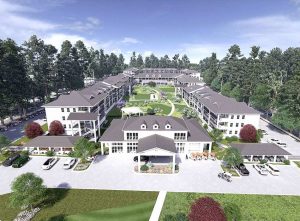After Thursday night, the Development Authority of Peachtree City may cease to exist. The Peachtree City Council will discuss the possibility of dissolving the authority at its meeting Thursday night.
To some, getting rid of DAPC would send a message that Peachtree City doesn’t care enough about the authority’s main missions: to assist small businesses in the city’s retail centers and maintain working relationships with existing industries.
The timing of the discussion also could raise questions, given that Councilman Eric Imker, a DAPC critic, just won re-election last week — and the status of the development authority was a hotly contested election issue.
In fact, council was initially planning to take up this decision in August but the matter was removed from the agenda prior to the meeting. At that time, the staff memo said that Councilman Imker himself asked for it to be put on the agenda, but Imker later denied he was behind it.
And the same as in August, there is no supporting documentation dedicated to the matter in the “council packet” of staff memos and background information that is published in advance of the Thursday council meeting.
There is a related matter on the agenda, however: immediately before the DAPC discussion, council will hear a special presentation from the Fayette County Development Authority. There also is a lack of supporting documents about the nature of that presentation, but such is typical when an agency outside the city is slated to make a presentation to council.
Imker has previously said he is skittish about the development authority’s power to issue bonds and seek loans for projects such as the city’s tennis center, which caused a considerable controversy several years ago due to fiscal mismanagement, culminating in a lawsuit against the city and development authority that was ultimately settled.
But the “new” development authority evolved away from that matter, and none of the current authority members are tied to that DAPC era in any way.
The city council has no direct control over the development authority’s decisions apart from controlling its budget, Imker has noted, although council does appoint each and every one of the seven-member DAPC.
The development authority’s political capital has been in short supply of late, starting last year when Mayor Don Haddix began pushing a budget increase to $150,000, up from $35,000 the previous year.
Ultimately, the majority of council swung the other way, deciding not to fund the authority in last year’s budget. That forced the authority to use what money it had left, scale back its number of meetings and in effect halt much of the progress that had been made in recent years.
Imker later told the authority that if its budget proposal had been more detailed, the matter might have ended differently. The budget cut was approved by Imker and councilwomen Kim Learnard and Vanessa Fleisch. Voting against the measure were Haddix and Councilman Doug Sturbaum.
This year the authority got $7,500 in the city budget, but it was a sign that the authority wouldn’t be given much of a leash in terms of projects, as the city continues to work on hiring a full-time economic development coordinator.
While Haddix has argued that coordinator should work hand-in-hand with the development authority, DAPC representatives have said they will be happy with whatever decision the council makes.
Some have argued that the DAPC is a duplicated service since the Fayette County Development Authority works to recruit large employers to the city, particularly in the city’s industrial park. But DAPC supporters say the local group has focused more on different missions: fostering growth with small businesses and also developing relationships with larger ones.
DAPC has operated in recent years without the help of a full-time staffer. But the lack of funding in the past year significantly reduced the authority’s capabilities, as a part-time staffer who helped coordinate small business activities was let go, and a DAPC volunteer with strong marketing experience — who was helping merchants build associations in the city’s retail centers — quit in protest over last year’s reduction in funds for DAPC.










Leave a Comment
You must be logged in to post a comment.